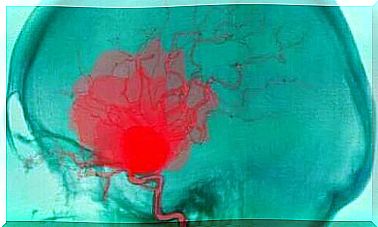Separation Anxiety: The Causes And Treatment Of This Disorder
Separation anxiety is a disorder that is common during childhood development.
It usually occurs in babies between eight and 12 months of age. It usually disappears by about 24 months of age, but some children show separation anxiety symptoms during primary school and adolescence.
- This disorder is usually an indication of general mood and mental health problems.
- One third of children with these disorders will be diagnosed with a mental illness as adults.
- In addition, we find that approximately half of the referrals in mental health care are due to the suspicion of this disorder.
In this article, we will discuss this condition and some of its symptoms.
What symptoms deserve our attention?
The symptoms of separation anxiety occur when a child is separated from the parents or guardians. What the child then experiences is a fear of being separated from those important people.
You should watch out for a number of symptoms:
- Not being able to let go of the parents.
- Crying profusely and excessively.
- Refusing to do things that cause the child to distance themselves from the parents.
- Physical illnesses, such as headaches and vomiting.
- Violent behavior and emotional tantrums.
- Refusing to go to school.
- Poor performance in school.
- Failing to interact with other children in a healthy way.
- Refusing to sleep alone.
- Constant nightmares.
What are the risk factors that can lead to separation anxiety?
In general, children with the following characteristics are more prone to develop this disorder.
- A family history of depression and anxiety.
- Children with a shy personality.
- A low socio-economic background.
- Children who are overprotected.
- A lack of proper interaction with the parents.
- Difficulty interacting with children of the same age.
Separation anxiety can also occur after the child has experienced a stressful event, such as:
- Moving to a new house.
- Change schools.
- The divorce of the parents.
- The death of a family member or close friend.
How is Separation Anxiety Disorder Diagnosed?
If you notice that your child has three or more of these symptoms, it is possible that they are suffering from this disorder.
There are generally two methods that you can use to deal with this situation in a positive way. The most effective treatment is therapy.
Cognitive-behavioral therapy, in particular, is used to teach children techniques to help them cope with the anxiety. Components of this therapy are deep breathing and relaxation exercises.
Another method is therapy that focuses on the interaction between parent and child. For the parents, these are the three main stages of treatment:
1. Direct interaction with the children
In the first place, this phase focuses on improving the quality of the relationship between parents and children. The focus is on warmth, attention and praise. This helps you to give your child a stronger sense of security.
2. Direct interaction with the parents
Here parents are taught why their child feels anxious.
The child therapist will develop a value scale that shows situations in which feelings of fear are caused in the child. At the same time, it is shown how you can work with rewards and how to reward positive reactions from the child.
3. Parent-Centric Interaction
The aim of the last phase is to teach parents how to communicate clearly with their children. This is a very fundamental factor. Parents then learn how to control the misbehavior of the children.
School Factors
Another important aspect that deserves attention is the school environment. The child needs a safe place to go when feeling anxious.
In addition, you should find a way that allows your child to keep in touch with you, even during school hours or in other instances where they are away from home.
It is also essential that the teacher encourages the child to interact with classmates, as there is no specific medication to treat separation anxiety.
Often, antidepressants are prescribed to older children with this condition. It is of course important that a specialist monitors this at all times, as this medication has a number of side effects.
Does separation anxiety affect family life?
This disorder naturally also affects emotional and social development. This may result in the child avoiding experimentation, which is crucial for normal development.
In reality, this disorder can affect family life in several ways:
- A first finding is that it has an impact on the activities of the family, because they are held back by the negative behavior of the child.
- In addition, it can happen that the parents become frustrated with their child. This is especially true when parents have little or no time for themselves or for each other.
- In addition, the siblings of a child with separation anxiety may become jealous because their sibling is getting so much attention.
Above all, remember that it is important that you always work together with the specialist. That will help you to solve the problem in the right way. Separation anxiety is a condition that requires special care.
That is why we advise you not to decide under any circumstances to tackle this on your own. On the contrary , the best way is to follow the advice of those who really know this disorder. The information in this article is intended as a guideline only.
Only a specialist can make the correct diagnosis and thus determine whether your child is suffering from this disorder or another.









